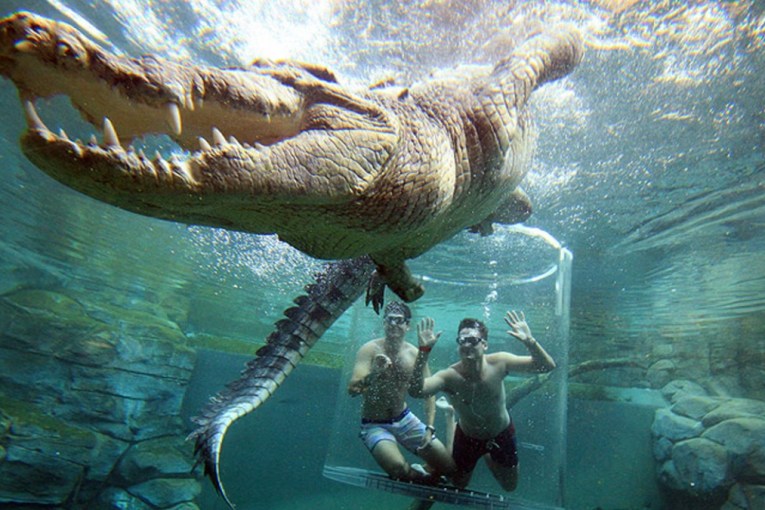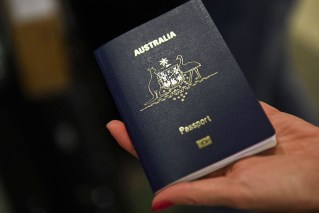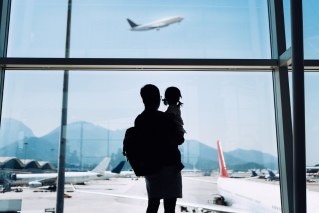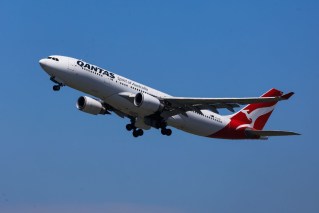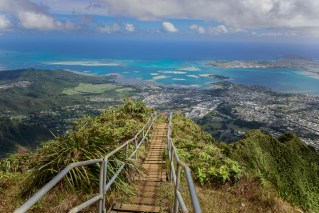Alan Joyce defends Qantas’ coronavirus safety plans, but risks remain

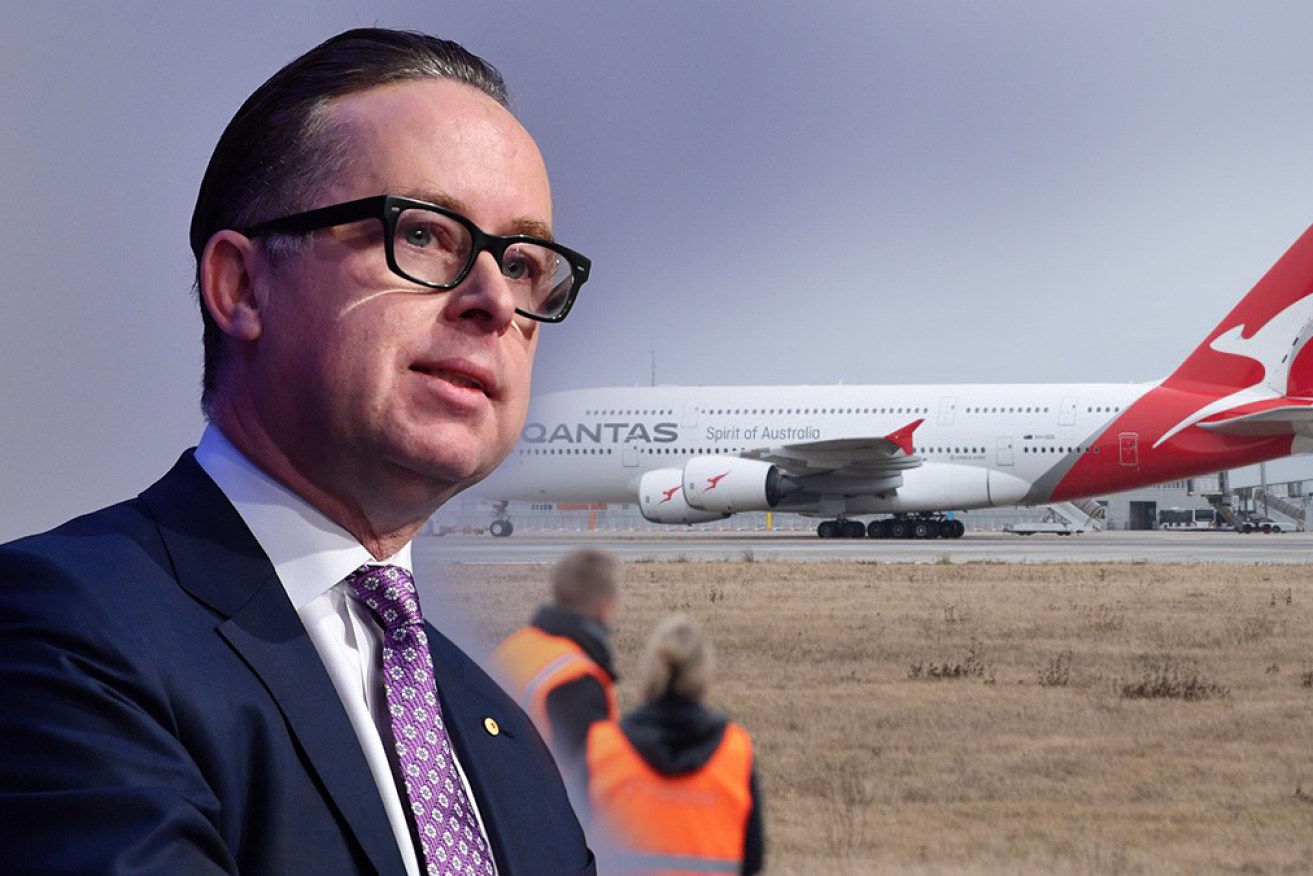
Social distancing on flights would send air fares soaring, Qantas boss Alan Joyce said. Photo: Getty/TND
Qantas has doubled down on its decision not to implement social distancing on planes in response to the coronavirus, but one of Australia’s leading infectious diseases experts has cautioned that flying will not be without risk.
Qantas boss Alan Joyce defended the choice not to reduce passenger numbers onboard on Wednesday.
It would be “uneconomical” to block out the middle seat in each row for the purpose of social distancing, and would cause air fares to soar, Mr Joyce told ABC’s RN.
“It’s not social distancing, it’s a 60-centimetre difference between two people,” he said.
“To get the four metres squared, you’ll end up with 22 people on an aircraft of 180 seats … and the airfares are nine to 10 times as much.”
Mr Joyce claimed that the airline’s precautions would make catching a flight safer than taking a train, bus, or dining out at a restaurant.
Qantas and its budget offshoot, Jetstar, are preparing to roll out the new hygiene and distancing measures at airports and onboard from June 12.
- Related: From ‘immunity passports’ to a trans-Tasman bubble, coronavirus will change the way we travel
Instead of social distancing, the airlines will offer passengers the option of wearing face masks, rely on hospital-grade HEPA air filters to reduce the risk of transmission on planes, and implement enhanced sanitisation practices and other measures to limit onboard movement.
Passengers with symptoms of illness will not be allowed to board.
Slashing passenger capacity may not be “financially viable” for airlines, but Qantas’ coronavirus measures will “not reduce the risk [of transmission] to zero”, University of New South Wales infectious diseases expert and Kirby Institute head of biosecurity research Raina MacIntyre told The New Daily.
“For an airline, reducing the number of seats by a substantial number to achieve physical distancing will likely make travel unaffordable for many, as the cost per seat will be passed on to the passengers,” she said.
Airlines have operated with maximum efficiency for a very long time – the days of a half-empty flight ended more than a decade ago.
“Many airlines are facing bankruptcy, so operating with vastly reduced passenger capacity is not likely to be financially viable.”
The question of using face masks to curb the spread of COVID-19 will “come up repeatedly over the next few months as normal activities resume, some where social distancing is unfeasible”, Professor MacIntyre said.
“The use of masks and disinfectant wipes is a way to mitigate the risk.
It will not reduce risk to zero, and neither will improved air cycling and HEPA filters on planes.
“Contact is also a mode of transmission, and touching a high-touch surface and contaminating yourself is equally risky.”
University of Queensland tourism expert Pierre Benckendorff said he was not surprised by Qantas’ decision to eschew social distancing onboards, as airlines face low profit margins, particularly on regional routes.
It’s a financial decision for them. They don’t want to be flying a lot of unviable routes,’’ Dr Benckendorff said.
The public’s response to Qantas’ measures has been mixed, he said.
“Some people just want things to go back to normal as quickly as possible and I think others are playing it very safe and saying we should observe social distancing as much as possible.”
Deputy chief medical officer Paul Kelly was grilled on the Qantas protocols at a press conference on Wednesday afternoon.
“Why is it OK for Qantas to fill a plane of passengers of more than 100 people, yet more than 10 people can’t sit outside at a coffee shop at the moment? How is that safe?” a reporter asked.
Professor Kelly said the government had been discussing coronavirus safety issues with Qantas since January, “not only for passengers but also for their staff, and it’s been a very challenging time for airlines all around the world in relation to this particular virus”.
At least 60 workers across the Qantas Group have tested positive to coronavirus in the past few months, and more than 750 forced to quarantine.
The Transport Workers Union has slammed Qantas’ plans as “troubling” and “not good enough”, and called on the federal government to implement a national plan to lower the risk of infection and spread of COVID-19 in aviation.
However, Professor Kelly said that “there are very specific engineering things that happen in relation to the ventilation on aircraft and so forth which can make it safer than a closed room, for example”.
“Probably not as safe as an outdoor cafe. But, look, we live in a very big country,” he said.
We do need our aircraft to get around this big country of ours for all sorts of reasons, whether that’s family or other reasons.
“And we do want to see our airline industry get back on their feet.”
Professor Kelly said the government “had a discussion last week with Qantas and worked through the sort of things they might want to look at. But we made it very clear that like all other industries in Australia, they needed to do their own risk assessment and come up with their own way of mitigating that risk”.
“We didn’t specifically say they should include masks, but that’s one of the ways they’ve looked at how they can decrease the risk whilst also looking to have a viable industry and to be able to fly,” Professor Kelly said.
